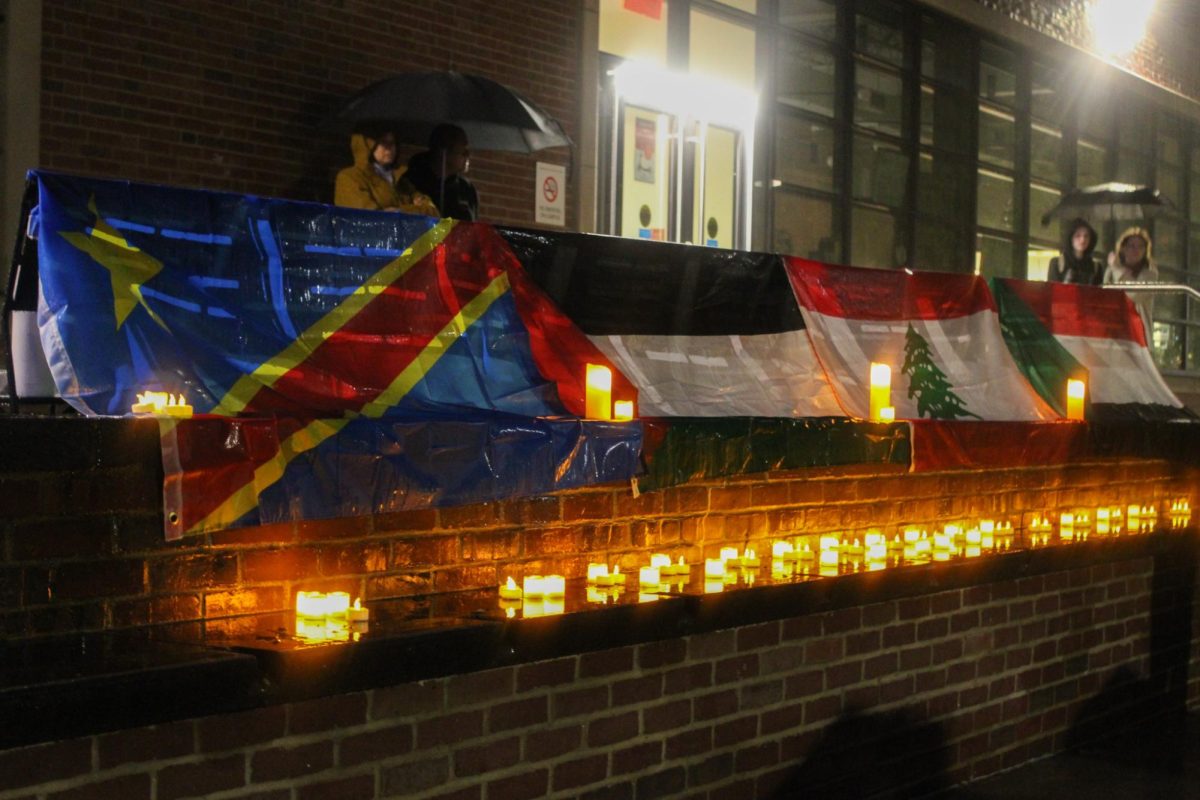On Thursday, Sept. 26 at 7 p.m. around 100 students gathered on the sidewalk between the Student Union and Campus Pond lawn to reflect in solidarity for people in the Democratic Republic of the Congo, Sudan, Lebanon and Palestine.
A shared announcement was made on the Instagram’s of the University of Massachusetts Amherst Students for Justice in Palestine, UMass Amherst Arab Cultural Association and The African Students Association at the University of Massachusetts Amherst about the vigil.
As a humanitarian crisis continues to grow in the DRC, “major bombardment” and Israeli airstrikes are escalating in Lebanon while Sudan is facing “extreme shortages of food, water, medicine and fuel,” along with famine and the displacement of millions of people. Civilians in Gaza continue to be bombed as, according to Al Jazeera, “Prime Minister Benjamin Netanyahu has pledged Israel will fight until ‘total victory’ in its continuing war on Gaza and promised to continue attacks on the Lebanese armed group Hezbollah.”
Students shared umbrellas and the protection of the trees to hide from the rain that drizzled onto the students and passer byers, some who slowed down to observe the vigil from afar.
Students were given the opportunity to stand in front of their peers and say a few words about what this vigil meant to them if they wished to do so.
Ridha Alam, a senior biology major and President of the South Asian Student Association at UMass, said “It’s really important for people to go up there and use your voice for the voiceless and really open your hearts. It’s really easy to focus on what makes us so different, but if you think about it, we’re all fundamentally the same.”
After four other people spoke, the vigil opened the floor, allowing people to speak to one another.
As people spoke in small groups, exchanging opinions and thoughts, senior Maya Glenn said that after attending SJP’s vigil last year in October, she knew she wanted to attend this year’s one as well, saying that it was beautiful for people to come together and speak about everything that was going on.
“I feel like if we can come out and at least acknowledge what’s happening on campus altogether, maybe it can give us the push to speak out more, to know that we’re a collective.” Glenn said.
Glenn noted the importance of the vigil’s location: across the sidewalk from where the encampment took place in the previous semester.
“I feel like there is power to [where the vigil is located],” Glenn said. “This is where the encampment was held, this is where so many students were arrested and brutalized, and then we come here to speak up and share and embrace each other. There is something pretty symbolic and powerful about it.”
A female Lebanese student said that coming together and taking a moment of silence to remember all the lives that have been lost works as a support system for the community.
“No matter what, everyone, in some way, is affected by these [events]. Whether you are ethnically related to these issues… or if you are just empathetic to the cause.”
The struggles between organizations align with each other, according to the Lebanese student, as they are all related to human suffering. “We’re all human at the end of the day, we all bleed the same colors… Even if we’re Palestinian [or Lebanese], wherever we’re from, we’re the same in that we’re one humanity and one people at the end of the day.”
Kalina Kornacki can be reached at [email protected] or followed on Twitter @KalinaKornacki.








